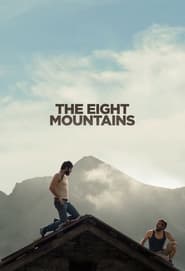Seattle International Film Festival 2023: Film #5
Not only is this a beautiful film, it is a spacious one as well, giving ample time for this story of a long friendship to unfold. With its Italian setting, it will surely invite (favourable but highly-qualified) comparisons to Elana Ferrante's Neopolitan Quartet; indeed, it's almost too eerie how this is a gender-swapped My Brilliant Friend (My Brilliant Bros?) that additionally switches suffocating Naples for the more rugged, airy and manly Alps.
The film itself lives most intensely through its wonderful mountain landscapes, superbly fulfilling that most basic, often forgotten function of cinema, of giving us an elsewhere, another world to inhabit.
— David Sexton (New Statesman)
The first rule of Film Club is that there are no rules, but [the film's creators] display one of the worst of them: silencing the uneducated. The movie’s dialogue is almost entirely limited to what advances the plot; there’s hardly any conversation that merely reflects what the characters think, an omission all the more grievous inasmuch as the urbanite, the putative intellectual, is the narrator, the central consciousness, the city mouse from whose perspective, almost entirely, the country mouse is seen and heard. […] The movie presents […] landscapes as cinematic abstractions, with drones and Steadicams and cameras perched on high to show the small figures of humans overwhelmed by, yes, nature, and to show the spectacular sights that surround the characters. But it stints on the visual point of view of the characters, voids itself of contemplative poise and analytical precision, hardly stays still long enough, looks in detail long enough. It doesn’t pay enough closeup, hands-on attention to soil and stone and water and snow, to wood and fire, to flesh and fabric, to suggest that the characters have any more of a physical connection to the settings than they have a perceptual one. […] The movie similarly dispenses the idea of physical labor, whether the construction of a house or the milking of cows or the production of cheese, in a handful of quick and approximative shots to merely signify that the work is being done, not how it’s done or what thought and knowledge go into it. Such omissions are conspicuous in the movie’s sketch of intellectual life, too: when Bruno makes eventual mention of the richer vocabulary and richer emotions that he’s got from reading books, there’s no indication of what he’s been reading, of what matters to him and why. There’s almost no wider world, no politics, no history, no sense of connection to what’s going on outside the narrow circle of personal relationship, no notion that the characters have any awareness at all about the news, about society at large, about the changes that they’re experiencing in daily life through technology, law, or mores, in the course of the film’s thirty or so years of drama. […] The Eight Mountains suggests a cinematic centrism that transmits, supposedly, real lives of real people but without any of the messiness or complexity of political life or inner turmoil, just the dewy fluctuations of private emotional connections; its pseudo-humanism takes for granted the detachment of the personal from society over all, and flaunts an aesthetic to embody it.
— Richard Brody (The New Yorker)

